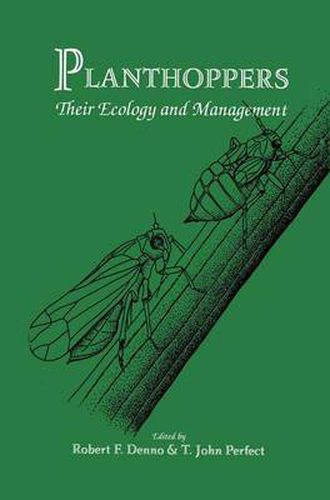Readings Newsletter
Become a Readings Member to make your shopping experience even easier.
Sign in or sign up for free!
You’re not far away from qualifying for FREE standard shipping within Australia
You’ve qualified for FREE standard shipping within Australia
The cart is loading…






This title is printed to order. This book may have been self-published. If so, we cannot guarantee the quality of the content. In the main most books will have gone through the editing process however some may not. We therefore suggest that you be aware of this before ordering this book. If in doubt check either the author or publisher’s details as we are unable to accept any returns unless they are faulty. Please contact us if you have any questions.
Planthoppers include some of the most devastating pests of major agricultural crops throughout the world. One species, the rice brown planthopper, is among the most economically important pests in Asia. In past decades, government policies encouraged the control of rice planthoppers with synthetic pesticides, a tactic which promoted insecticide resistance and often led to the pesticide-induced resurgence of pest populations. To deter planthopper outbreaks, a more ecologically sound management strategy is being implemented, one based on a thorough investigation of population dynamics, natural enemies, and the genetics of host plant and insecticide adaptation. In the natural habitats of North America and Europe, scientists have also used planthoppers as model organisms to test ecological and evolutionary theory. The consequence of these diverse studies is an extremely scattered literature on planthoppers that has never been synthesized from an ecological perspective. This volume summarizes what is known about planthopper ecology and biological control. It takes a theoretical approach yet is deeply concerned with the application of theory to the practical problems of pest management.
$9.00 standard shipping within Australia
FREE standard shipping within Australia for orders over $100.00
Express & International shipping calculated at checkout
This title is printed to order. This book may have been self-published. If so, we cannot guarantee the quality of the content. In the main most books will have gone through the editing process however some may not. We therefore suggest that you be aware of this before ordering this book. If in doubt check either the author or publisher’s details as we are unable to accept any returns unless they are faulty. Please contact us if you have any questions.
Planthoppers include some of the most devastating pests of major agricultural crops throughout the world. One species, the rice brown planthopper, is among the most economically important pests in Asia. In past decades, government policies encouraged the control of rice planthoppers with synthetic pesticides, a tactic which promoted insecticide resistance and often led to the pesticide-induced resurgence of pest populations. To deter planthopper outbreaks, a more ecologically sound management strategy is being implemented, one based on a thorough investigation of population dynamics, natural enemies, and the genetics of host plant and insecticide adaptation. In the natural habitats of North America and Europe, scientists have also used planthoppers as model organisms to test ecological and evolutionary theory. The consequence of these diverse studies is an extremely scattered literature on planthoppers that has never been synthesized from an ecological perspective. This volume summarizes what is known about planthopper ecology and biological control. It takes a theoretical approach yet is deeply concerned with the application of theory to the practical problems of pest management.